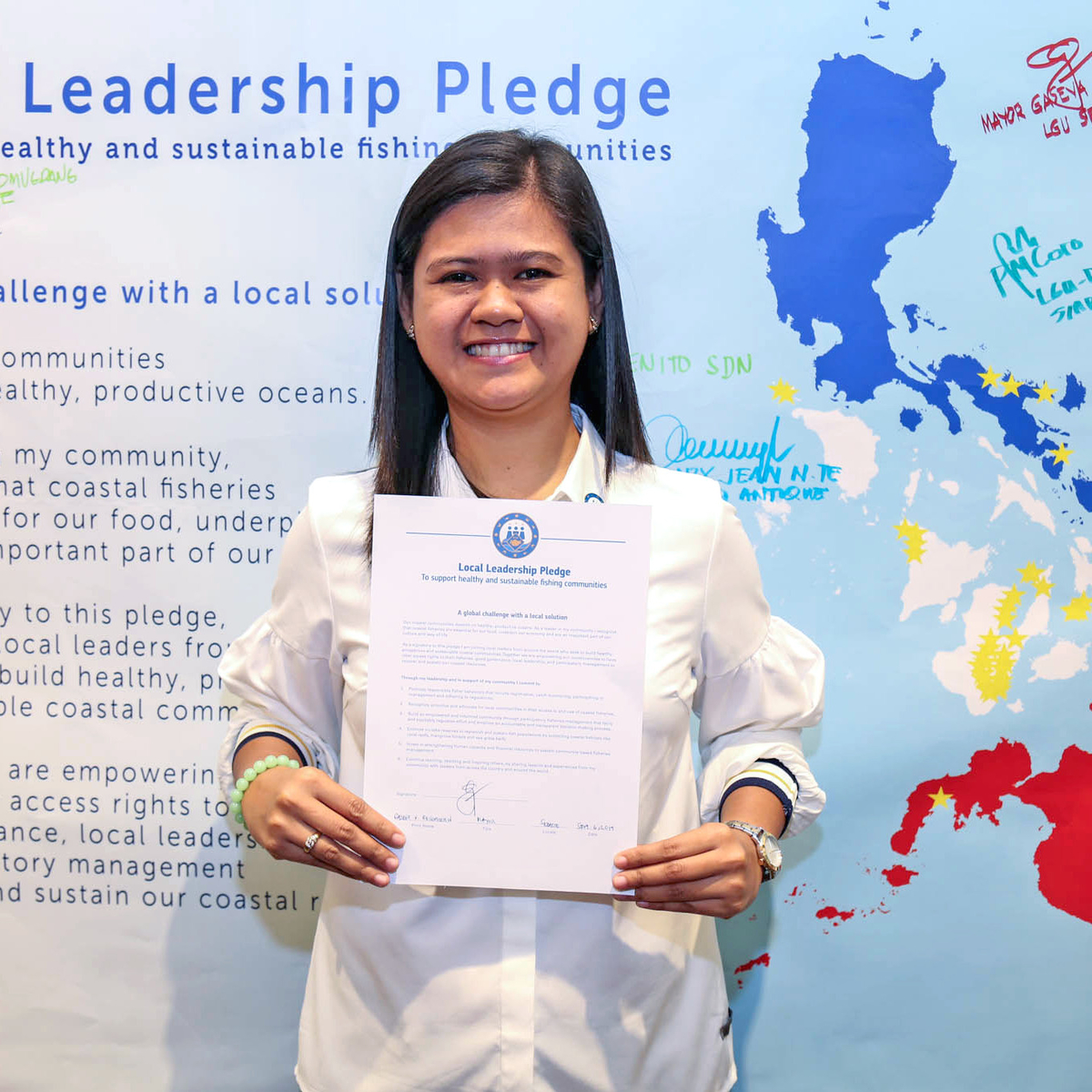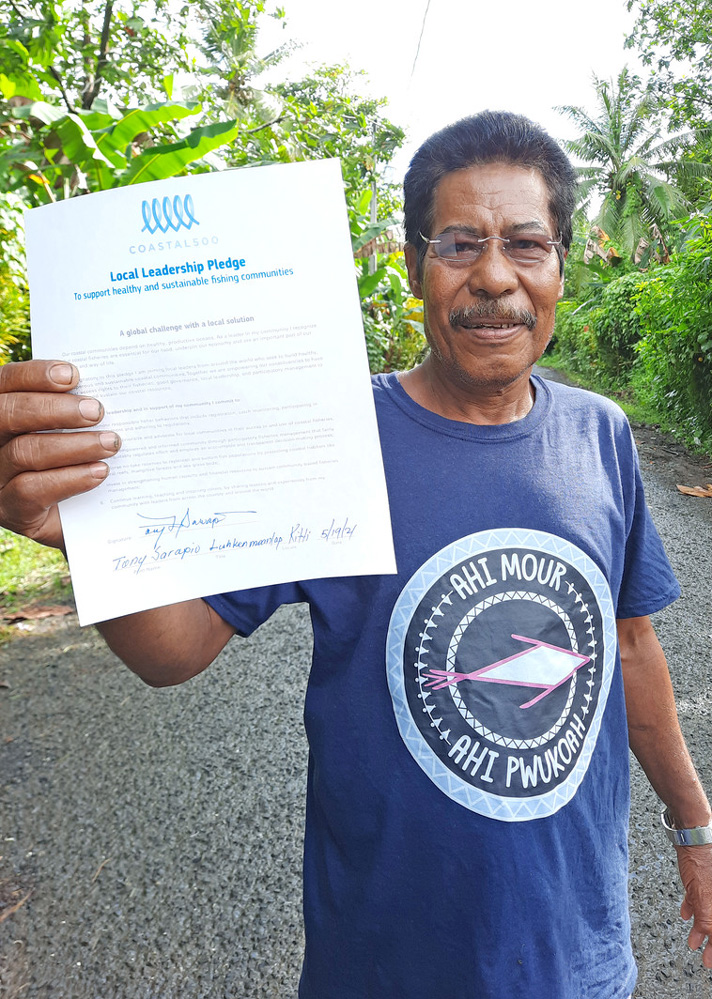“Through this pledge, we emphasize our commitment to our municipal fishing communities. We signed because we believe that participatory management works, that the decision-making process is collective, and that developing fishing activity contributes to developing the municipality as a whole. Together, mayors, we are stronger.”
-Brazilian Mayor Marlene Borges speaking to pledge signatories during the recent Coastal 500 launch.
Since 2019, over 100 coastal mayors and local government leaders across eight countries have been publicly pledging to support coastal fisheries reform in their respective countries. In early June, from their homes and offices, this new leadership network in Indonesia, the Philippines, Mozambique, the Pacific Islands, Brazil, Honduras, and Guatemala, gathered to celebrate and launch this shared commitment to championing the needs of the small-scale fisheries sector and the 1.2 million coastal fishing community members they represent.

Pledging is a powerful example of the intention to do good and benefit others. Pledges and declarations are commitments to do (or refrain from doing) something. They can be personal (think New Year’s resolutions) or social (signing a climate pledge to take action). They can help those who pledge visualize the potential for change and set goals for reaching it. Pledges can also help to coordinate groups of individuals who want to change something (the famous “Giving Pledge” mobilizing philanthropists globally). In the case of the Coastal 500 pledge, the public commitment is a social act that coordinates local leaders who want to improve the lives of coastal fishing communities and the ecosystems they depend on for food and income.
Public pledges often also serve as the basis for starting a conversation about an issue or changing beliefs surrounding it. By publicly and collectively committing to action and leadership for small-scale fishers, and sharing information with their peers and constituents, these leaders are communicating new expectations for the sector and signaling a desire to change a norm. Changing a norm (i.e., the informal social rules that govern our behavior ) is a process that often begins when individuals disregard conventional wisdom and speak out to others, some of whom may not yet align with the action desired. So, these initial ‘local leader champions’ are important advocates for coastal fisheries reform, and they signal a shift in the normative expectations around what is now socially acceptable in their communities.

Research from the behavioral and social sciences tells us that the behaviors, beliefs, and expectations of others are an important motivator of change—and that people who publicly pledge to do something are more likely to follow through than those who don’t. Humans are social beings, and therefore our decisions are highly dependent on those around us. This includes following the lead of those we may like or admire, like mayors and local government leaders committing to coastal fisheries reform.
Rare has been facilitating the leadership pledges to let leaders in their respective countries know that they are not alone in their commitments and actions. During the event, surrounded by their peers, mayors and local government leaders together reviewed concrete actions they can take to follow through on their commitments. By pledging, the 100+ mayors and local government leaders are demonstrating the power of local leadership in coastal fisheries reform and setting an example for coastal communities around the world.